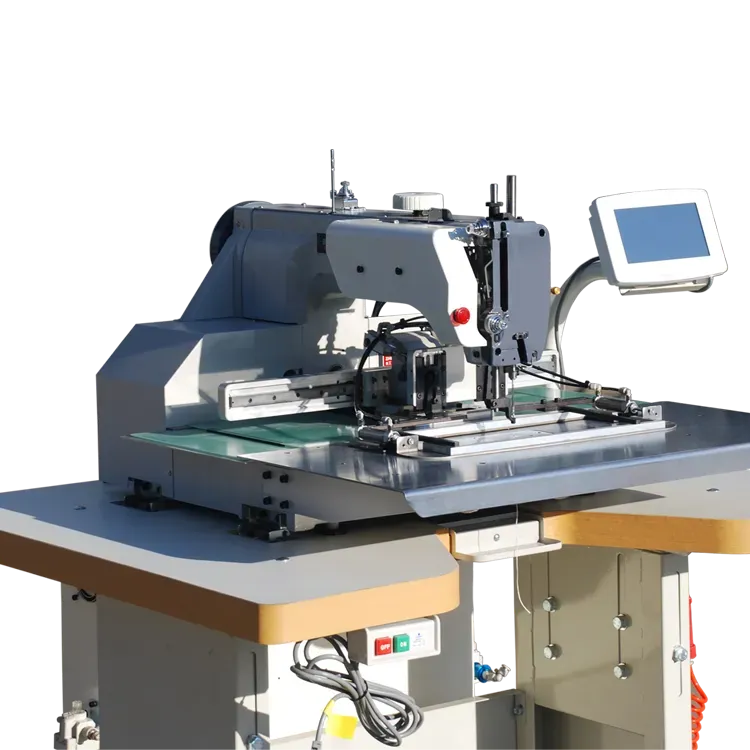sewing machine for thick fabric
When it comes to sewing thick fabric, whether for upholstery, heavy garments, or other projects, choosing the right sewing machine is crucial. Not all machines are created equal, and using an inappropriate one can lead to frustration and poor results. This article focuses on the key features and considerations to keep in mind when selecting a sewing machine for thick fabric.
First and foremost, power is a significant factor. Thick fabrics such as denim, canvas, or heavy upholstery require a machine with a strong motor. Look for machines labeled as having a heavy-duty or industrial capability. These machines are equipped to handle the extra resistance that thick layers of fabric present, ensuring that the needle can penetrate the material without breaking or jamming.
Another essential feature to consider is the type of presser foot and feed system. A walking foot or dual feed system is ideal for managing thick fabrics. These types of presser feet help to keep multiple layers moving together smoothly, preventing puckering or shifting, which is often a problem with thicker materials. A walking foot essentially grips the top layer of fabric while the feed dogs pull the bottom layer, providing even feeding for accurate stitching.
Needle choice is equally important. When sewing thick fabric, a stronger needle is necessary. Look for heavy-duty or jeans needles, which are designed to penetrate tough materials without bending or breaking. A larger needle size, such as 90/14 or 100/16, is typically recommended when sewing thick layers, as it can handle the increased thickness more effectively.
sewing machine for thick fabric

Thread selection also plays a significant role in the quality of your sewing project. For thick fabrics, it’s advisable to use high-quality polyester or cotton-wrapped polyester thread, which offers strength and flexibility. Avoid using standard sewing thread, as it may not hold up to the strain of heavy fabric. Invest in thicker, heavy-duty thread that can withstand the rigors of sewing bulky materials.
Furthermore, having adjustable speed settings can be beneficial when working with thick fabrics. Slower speeds allow for greater control, enabling you to maneuver through tricky areas without compromising precision. Many modern sewing machines come with adjustable speed control, making it easier to stitch through dense materials without skipping stitches or making mistakes.
Finally, consider the overall build quality and durability of the sewing machine
. A sturdy metal frame is preferable to a plastic one, as it can provide the stability needed to handle thick fabrics. Machines with more robust construction are less likely to vibrate or skip stitches, providing a smoother sewing experience.In conclusion, selecting the right sewing machine for thick fabric involves considering power, presser foot options, needle and thread types, speed adjustments, and overall durability. By keeping these factors in mind, you can choose a machine that will help you achieve professional-looking results, ensuring that your projects become a source of pride rather than frustration. Whether you are a beginner or an experienced sewer, investing in the right equipment is essential for successful sewing.
-
Industrial Cylinder Arm Sewing Machine: Revolutionizing Heavy-Duty SewingNewsJul.28,2025
-
Cylinder Arm Sewing Machine: Perfect for Special Sewing ApplicationsNewsJul.28,2025
-
Cylinder Bed Sewing Machine: Essential for Sewing Complex MaterialsNewsJul.28,2025
-
Heavy Duty Sewing Machine: The Essential Tool for Industrial ApplicationsNewsJul.28,2025
-
Computerized Pattern Sewing Machine: Revolutionizing Precision StitchingNewsJul.28,2025
-
Heavy Duty Industrial Sewing Machine: Power Meets PrecisionNewsJul.28,2025
-
Leather Sewing Machine: The Industrial Standard for Tough MaterialsNewsJul.18,2025





























